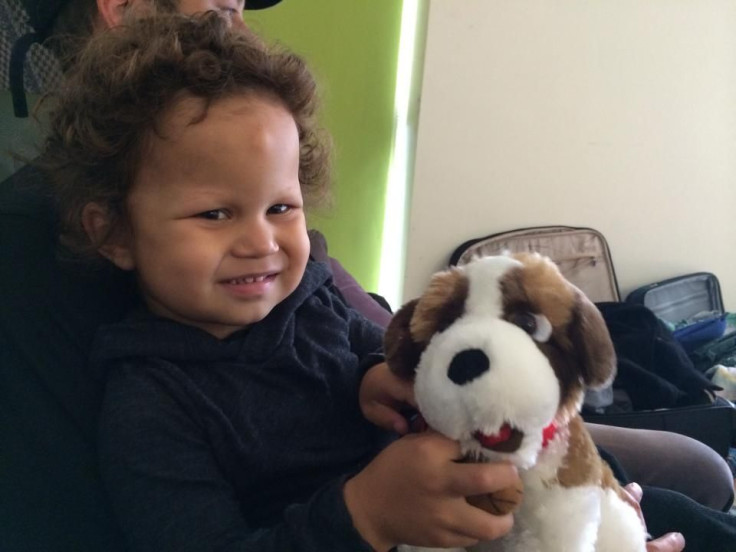'Human Mannequin Disease,' Fibrodysplasia Ossificans Progressiva, Could Eventually Turn This Toddler Into A Statue

All parents worry about their child being injured while roughhousing, but very few have to worry that a fall could lead to their child turning into a “mannequin.” Lara Boniface, 40, gets understandably uneasy when her 3-year-old son Jarvis Budd is playing around with some friends because a simple fall can lead to his joints seizing uncontrollably and can trigger abnormal bone growth.
Jarvis is one of 13 people in Australia diagnosed with fibrodysplasia ossificans progressive, commonly known as “human mannequin disease.” People with this genetic condition have their muscle tissue and connective tissue replaced by bone overtime leading to bone growth on the outside of their skeleton. The development of this second skeleton eventually restricts growth, while the heart, eyes, and brain remain unaffected.
“We don’t know when it’s going to start, when he will have a flare up and we still want to raise a normal strong little boy,” Boniface told news.com.au. “I don’t want to put him in a bubble and turn him into someone who’s scared all the time. There’s no research currently being done here we have to go to America for advice. We want a cure.”
According to the Internal Fibrodysplasia Ossificans Progressive Association, fibrodysplasia ossificans progressive is one of the rarest and most disabling genetic condition known to medicine. One out of every two million people are affected by this genetic disease. Researchers have found no ethnic, racial, or gender patterns related to the disease. Currently, 800 cases have been confirmed around the world, including 285 in the United States.
Instead of sitting around and waiting for the other shoe to drop, Boniface has gotten proactive in finding her son the treatment he desperately needs. She is already in contact with specialists at the University of Queensland and is monitoring a treatment trial in the U.S. She and Jarvis’ father have also established HopeForJarvis.com and they plan on conducting a fundraiser this Saturday, which also marks Rare Disease Day, with a little help from the advocacy group Rare Voice Australia.
Published by Medicaldaily.com



























